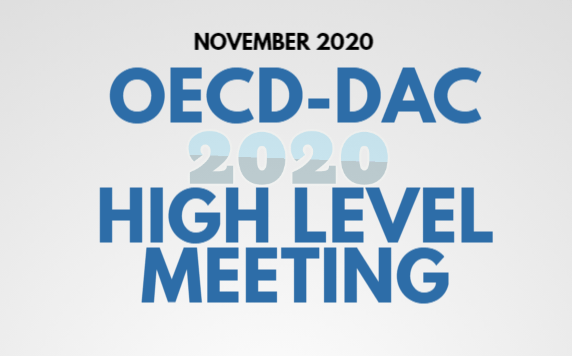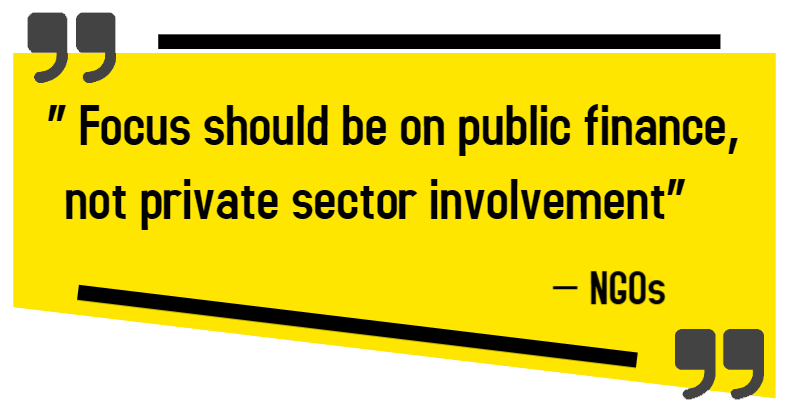 DAC-CSO Reference Group
DAC-CSO Reference Group
ODA levels are below expectations despite COVID19 and climate crises
On Day 1 of OECD DAC High-Level Meeting
‘Focus should be on public finance, not private sector involvement’ - NGOs

Delegates in the Organisation for Economic Co-operation and Development's Development Assistance Committee (OECD DAC) High Level Meeting (HLM) yesterday all agreed that the unprecedented crises today call for unprecedented responses, but the DAC members’ level of commitment has yet to measure up to the severity of the crises. For civil society organizations (CSOs), the OECD-DAC continues its narrative of leveraging the private sector, with only some mention of safeguards in private sector involvement.
These matters were discussed in Day 1 of the OECD-DAC HLM yesterday, attended by development and finance officials from over 30 donor countries, as well as representatives from CSOs, academia, and international institutions such as the World Bank and United Nations Development Programme.
It was also noted in the meeting that overall ODA levels are below expectations this year, notwithstanding the fact that climate and COVID-19 crises call for massive increases in public funding.
“We welcome the increases in ODA and the commitment to stay on course, but the scale and profundity of the crises we are facing call for a more ambitious agenda, part of which is scaling up ODA”, said Leo Atakpu, one of the two representatives of CSOs that are part of the DAC-CSO Reference Group. Atakpu is also the executive deputy director of Africa Network for Environment & Economic Justice (ANEEJ).
The DAC-CSO Reference Group, a coalition of over 100 CSOs worldwide, has the mandate to facilitate engagement of civil society with OECD DAC activities. For the first time, the CSO representatives attended the meeting as delegates with “observer status”.

“States should ensure that clear standards and firm accountability mechanisms are in place when it comes to private sector involvement. Private sector involvement should always be underpinned by principles of development effectiveness. However, more importantly, the focus should be on stronger public finance because weathering the pandemic crisis is a matter of stronger public services and public funding,” said Julia Sanchez, another representative from the DAC-CSO Reference Group. Sanchez, also the secretary-general of Actionaid International, added that COVID-19 has exposed “chronic underfunding of public services, and in particular the health sectors, in both developed and developing countries.”
“What we saw in the meeting is continuing insistence on reforms in partner countries toward providing an attractive environment for private investment and their commercial motives, which simply is reinforcing a status quo that produced much of the world's inequality and impoverishment,” said Sanchez.
“The best way to strengthen political support for commitments such as increasing ODA is to strengthen civil society engagement. This is a prerequisite for achieving global development goals. The DAC has to send a strong political message and commit to concrete actions in protecting civic spaces,” said Atakpu.
Contact Person: Reileen Dulay, Coordinator - [email protected]
DAC HLM 2020 Media Release,
November 10, 2020
https://www.dac-csoreferencegroup.com/
